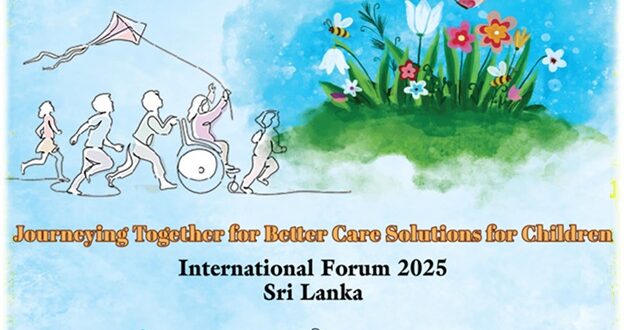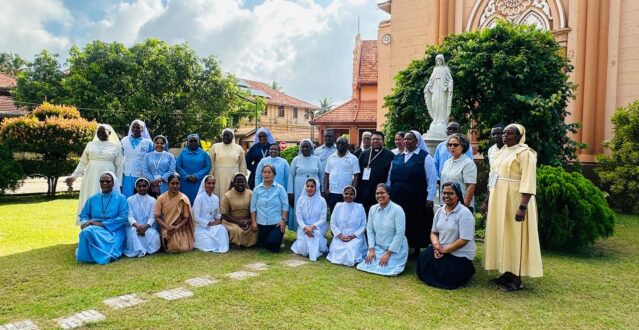The Chewa Proverb Anayamwila ku bere, which literary translates to “He/She was sucking it at the mother’s breast”, underscores the philosophy of the Catholic Care for Children (CCC) Movement that stipulates that the best environment for primary socialization and holistic growth of every child is the familial set up. The same is underscored in Saint Paul’s letter to the Christian community in the city of Ephesus, where he reminded parents that their duty was not only to provide for their children’s food and shelter but also to “bring them up with the training and instruction of the Lord” (Eph. 6:4).
In this magazine, AMECEA Secretariat brings together stories about the activities of Catholic nuns in eastern Africa, towards holistic care of the children who were abandoned, orphaned, have physical or mental disability, or whose mothers are imprisoned. Specifically, they are about CCC activities in Kenya, Uganda and Zambia. Of course, we recognize also that the Association of Women Religious in Malawi (AWRIM) is a new entry to the movement. Thanks to the Gerald and Henrietta Rauenhorst (GHR) Foundation, we hope that soon we shall also capture many other success stories from the other countries in the region and beyond so that this becomes a platform for sharing Best Practices in Catholic Care for Children and for building synergies.
From the stories that are documented in this magazine, there are basically two key issues underlining the movement, both of them calling for regional and national advocacy as a strategy. Firstly, we see in the stories the need to strengthen families in eastern Africa so that children do not end up in care institutions but grow up in the ideal environment, the family, where their dignity is respected as
human beings. The stories coming from the Association of Sisterhoods of Kenya (AOSK) and the Zambia Association of Sisterhoods (ZAS) are quite inspirational not only to fellow nuns but also to Catholic Religious institutions and all pastoral agents working in family and child care apostolates.
Secondly, we learn from the stories that those children who end up in the institutions must in the shortest time possible be reintegrated into the family set up. The efforts made by the Sisters in Uganda and Zambia to ensure that care for children must be deinstitutionalized are outstanding cases of the need for the Church and government to work together in setting up policies that are conducive to children in family set ups.
As a matter of fact, who is responsible for bringing up the children in this desired environment? This task must involve all of us as stakeholders: the donor partners, social workers, NGOs, the Church’s family apostolates, and government Ministries responsible for ensuring that the rights of children are respected. However, the role of the family and the local community is a condition sine qua non.
We congratulate the nuns in the member Conferences for championing this course in the region. And on our part as AMECEA Social Communications, we commit to playing our role of supporting their efforts. Aware of the strength of the pastoral departments and other relevant commissions in the dioceses and Bishops’ conferences, we appeal for strengthened collaboration in order to realize reform in the way care for children is being given in most cases. We would like to see to it that each and every child in the region grows up in the family where holistic Catholic care is guaranteed.
Our thanks to the Association of Member Episcopal Conferences in Eastern Africa for use of this article from the AMECEA July 2022 magazine.



